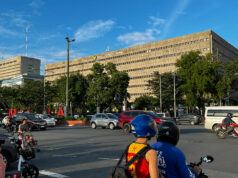Doctor assignment to Cebu made voluntary
THE GOVERNMENT will no longer force state doctors to go to coronavirus hotspot Cebu City, and will instead seek volunteers, the Department of Health (DoH) said on Tuesday.
The original plan was to send 40 doctors in four batches every two weeks, but a number of them declined, Health Undersecretary Maria Rosario S. Vergeire told an online news briefing.
“This would all be voluntary so we won’t have an issue for the meantime,” she said.
Ms. Vergeire said initially, 37 doctors from Western Visayas were to be reassigned temporarily, three of them turned out to be pregnant. Some areas also would have been left without government doctors had they been transferred, cutting the list to 26.
Health authorities were finalizing the number of doctors to be deployed, she added.
Ms. Vergeire on Sunday said Health Secretary Francisco T. Duque III had ordered the transfer of rural doctors to Cebu City because its healthcare system was overwhelmed.
Doctors to the Barrios batches 36 and 37 opposed the order, saying the doctors had not been consulted and informed through writing.
They also criticized the lack of protocols for the deployment, which they said “contradicts the thrust of the Doctor to the Barrios program.” The government started the program in 1993 to address the lack of doctors in the countryside.
Doctors assigned in Western Visayas will stay in Cebu City from June 30 to Sept. 30, while those in Central Visayas were expected to report from June 26 to July 30.
The cities of Cebu and Ormoc, and the provinces of Leyte and Samar were considered COVID-19 hotspots due to a surge in cases.
Ms. Vergeire said they would be sent to private hospitals when they see the need. The doctors transferred to Cebu City will provide support in triage areas and outpatient units.
The agency might also tap medical interns who have graduated but have yet to take licensure exams to help in hospitals.
Licensed doctors will supervise the interns, who will be assigned to triage areas or places that “will not require too much decision-making,” Ms. Vergeire said. — Vann Marlo M. Villegas



